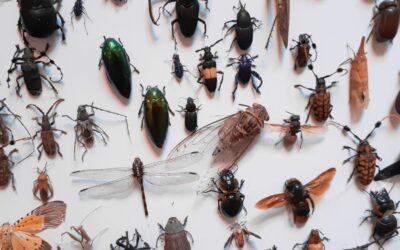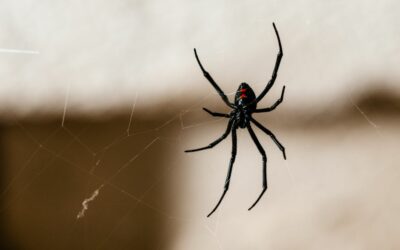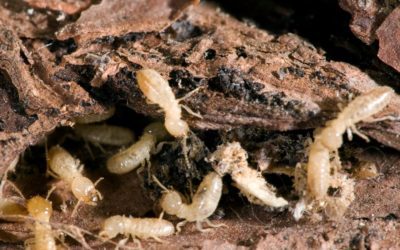
The overuse of chemicals for pest control has caused many problems for our environment and precious creatures of all kinds, including humans. From traces of pesticides making their way to our favorite food products to eliminating some of the world’s most needed insects.
The solution? Natural pest control using beneficial bugs.
In this blog, JB’s Pest Control will walk you through the basics of natural pest control. You’ll learn all about how the process works and the helpful insects behind the effective technique.
Why Go for Natural Pest Control?
Commercial farmers, organic farmers, and home gardeners alike have found the solution to an ongoing problem- getting rid of plant-destroying pests. At the height of pesticide and chemical treatments, many people realized that insects quickly evolved to overcome these methods. So, a new technique had to be discovered.
In more recent years, using beneficial insects for natural pest control has been on the rise. And not only because the chemical treatments are harmful to animals, people, and the environment. Using natural predators is extremely effective in getting rid of unwanted pests. And it’s been working for the entire lifetime of our planet. So, it’s time to use it to our advantage.
With a little research, some maintenance, and just a bit of trial and error, you won’t have to use a single chemical again.
How to Use Natural Pest Control
Conveniently, there are many websites where you can purchase some of the most beneficial bugs for natural pest control. When they arrive in the mail, release them into the area you want to treat, and viola! You’re on your way to organically eliminating the pests ruining your garden or lush landscape.
Alternatively, you can look through your yard or garden for what helpful insects may already be present. After identifying the critters, learn all about them. There are many different ways to keep each insect happy and thriving in your yard. This will be necessary whether you purchase the bugs or find them.
To get started, use the following steps to have a general idea about the process of using natural pest control methods with insects.
1 | Pick the Right Bugs
The beneficial insects you will use for natural pest control will depend on the pests you are trying to eliminate. Each destructive bug eating away at your garden has different natural predators. It is crucial to collect all the information you can before choosing which insect is suitable for the job.
Consider the following when determining which bug is right for you:
- What pests are you trying to get rid of?
- Where are they located in your yard or garden?
- How much damage are they doing?
2 | Get the Timing Just Right
When releasing insects into your yard, timing is key. One rule of thumb for any bug you use for natural pest control is to release it when its food source- the targeted pest- is bountiful. This will instantly attract the beneficial insect to the area and give them the resources to survive. Otherwise, they will either die off or move locations.
Another tip to keep in mind is to know the specifics of the bug you are working with. For example, ladybugs need to be released at a specific time of day, or they will immediately fly away. Other insects have different requirements, like that of the Ladybug. So, be sure you read up on the process before your efforts go to waste.
3 | Keep the Beneficial Bugs There
Finally, once the bugs are introduced to your yard or garden, you’ll need to keep them happy. In other words, create an environment where the beneficial insect can thrive and continue to be effective in eliminating unwanted pests.
Humidity, shelter, and a consistent water source are just some of the needs for many bugs. Again, remember to do your research on how to maintain a stable ecosystem for your little helpers.

What Insects Work Best for Organic Pest Control?
There are so many beneficial insects you can use for natural pest control. Below, you will read about some of the most well-known predators of backyard pests.
Ladybugs
Friendly ladybugs are one of the most commonly used insects for natural pest control. They are highly efficient in getting rid of perhaps the most prominent foe to our landscaped yards and gardens- the aphid. Additionally, ladybugs consume whiteflies and the Colorado potato beetle, making it an excellent choice for homeowners struggling with all three.
Your ladybugs will need a few things to keep them healthy and happy:
- Accessible water source, like a shallow dish of freshwater
- A place for shelter, like an empty toilet paper roll
- Their favorite plants, like dill and dandelion
Ground Beetles
Ground beetles include a large family of typically black, long, oval-shaped beetles. Though, they can be many different colors and have varying appearances.
If you have slugs, caterpillars, or cutworms wreaking havoc on your landscape, introduce some ground beetles. In fact, these valuable beetles are considered generalists, meaning they will eat pests of all kinds. This includes the Colorado potato beetle, aphids, mites, and more.
Plus, several ground beetle species are omnivores that feed on the seeds of weeds throughout the yard. Depending on availability, they are known to switch between pests and weeds. So, when the pests are all eliminated, they’ll move onto seeds and vice versa.
Ground beetles are fond of tall grass for shelter, as well as clover plants and evening primrose. And for extra efficiency, you can plant nectar-producing plants. This will attract flying insects like bees and wasps, which will frighten the targeted pests and force them closer to the ground. There, the ground beetles will be waiting for their next meal.
Green Lacewings
Lacewings are delicate and elegant-looking flying insects. Their larvae, appropriately named aphid lions, are pest-eliminating machines.
For pests like aphids, whiteflies, leafhoppers, and mealybugs, release green lacewings. You’ll want to focus on maintaining the larval stage. However, to continuously produce more larvae, you’ll also need to make sure the adults are thriving and reproducing.
Adult lacewings are less effective at natural pest control because they primarily consume pollen and nectar. Nevertheless, without the adults, you wouldn’t have any aphid lions.
Keep this beneficial insect around by planting dill, coriander, angelica, and yarrow.
Damsel Bugs
Are you looking for a bug with a massive appetite? Look no further than the Damsel bug. These handy insects will consume many kinds of pests, including aphids, leafhoppers, and caterpillars. And that’s not all. Damsel bugs will also feed on the eggs and larvae of other unwanted pests. Plus, they are great at getting rid of spider mites.
Damsel bugs are attracted to grain plants and are found in abundance in cotton and soybean fields. To keep them happy at your home, try planting the following:
- Alfalfa
- Marigolds
- Lavender
- Fennel
- spearmint
Minute Pirate Bugs
Black, tan, and oval-shaped minute pirate bugs belong to the “true-bug” family because of their sucking mouthparts. These tiny bugs prefer mites and thrips. But they will also feed on aphids, small caterpillars, and whiteflies. Unfortunately, when the minute pirate bug runs out of pesky insects to eat, it may be tempted to take a meal from the nearest sweaty human.
After a spring full of consuming the pests in your yard, be wary of these beneficial insects. Suppose you and your family are outdoors often in the late summer or early autumn. In that case, these pest-eliminating bugs may not be your best choice. Their bites are painful and cause itchy red bumps for some individuals.
However, you may not be so concerned if you don’t have young children running around in the backyard or helping you in the garden. Just be sure to wear long sleeves and gloves when working in the yard during the seasons when minute pirate bugs may be extra hungry.
If this is the case, ensure you have planted their favorite greens, like caraway, fennel, alfalfa, and spearmint.

How Can JB’s Pest Control Help?
Remember to give yourself some time to perfect this unique pest control method. Working with live creatures always has a learning curve.
However, if all else fails, you can call on the experts at JB’s Pest Control. We work diligently to identify the pesky bugs destroying the plants in your yard or garden. Then, we get rid of the pests in the most efficient and safe ways. Reach out to JB’s Pest Control for a bug-free yard and home.




